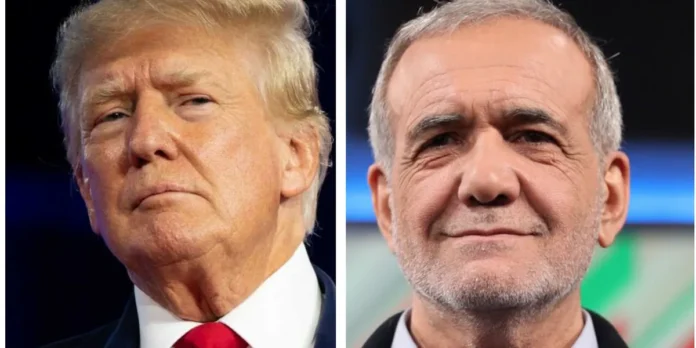Washington, DC [US]: US President Donald Trump on Sunday (local time) issued a stark warning to Iran, threatening possible military action and the imposition of secondary tariffs if Tehran fails to comply with the nuclear deal proposed by the US.
In an interview with NBC News, Trump stated that Iran would be given “a couple of weeks” to decide, emphasizing that if no agreement is reached, “there will be bombing, the likes of which they have never seen before.”
Threat of Secondary Tariffs and Military Action
Trump also indicated that the US is prepared to enforce economic pressure through secondary tariffs, should Iran refuse to negotiate.
“We have the secondary tariffs on Iran, and we’ll probably give it a couple of weeks, and if we don’t see any progress, we’re going to put them on… But we’re going to make a decision on secondary tariffs on Iran based on whether or not they’re going to make a (nuclear) deal. If they’re going to make a deal, then we’re never going to put secondary tariffs on; we’re going to hope they have a great, long and successful life as a country,” Trump said.
While maintaining a hardline stance, he also left the door open for diplomacy, suggesting that Iran might accept the deal.
“But we’ll see what happens… I can’t imagine them doing anything else but making a deal. I would prefer a deal to the other alternative, which I think everybody on this plane knows what that is, and that’s not going to be pretty. And I do not prefer that,” he added.
Iran Rejects Direct Talks but Leaves Room for Indirect Negotiations
Earlier on Sunday, Iranian President Masoud Pezeshkian announced that Tehran had rejected direct talks with the US in response to a letter from Trump regarding Iran’s nuclear program, as reported by Politico.
“Although the possibility of direct negotiations between the two sides has been rejected in this response, it has been emphasized that the path for indirect negotiations remains open,” Pezeshkian stated.
Escalating US-Iran Tensions
Tensions between Washington and Tehran have escalated since Trump’s return to office. His administration insists that Iran must not obtain nuclear weapons and has taken a firm stance against Tehran’s nuclear ambitions.
During his previous term, Trump withdrew the US from the 2015 nuclear agreement, a deal aimed at limiting Iran’s nuclear program in exchange for sanctions relief. The agreement, which included China, Russia, France, Germany, Britain, and the European Union, was later accused by Trump of failing to hold Iran accountable for its commitments.
With the latest threats of military action and sanctions, the coming weeks will be crucial in determining whether diplomacy prevails or tensions escalate further between the US and Iran.


